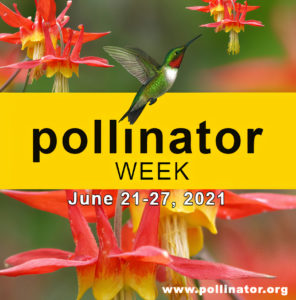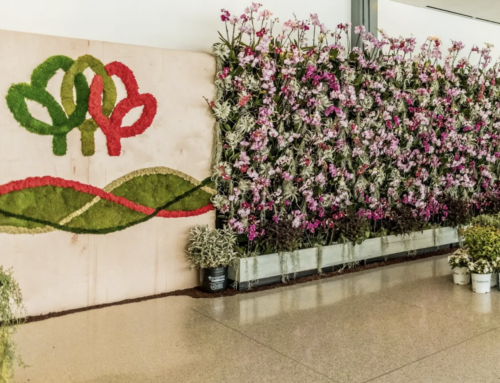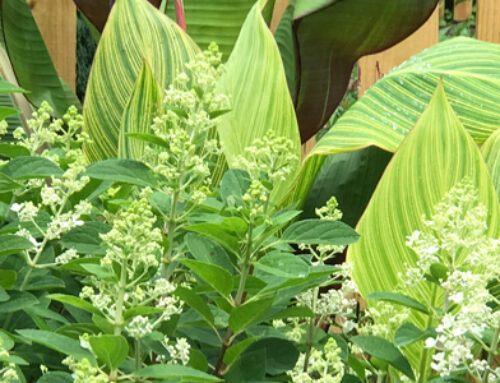The week of June 21 – 27, 2021 is National Pollinator Week!
You may be seeing gardeners, greenhouses, and others, talking about pollinators much more than usual right now. This is why! This week is a time to celebrate all pollinators and bring awareness to their importance. Pollination leads to the production of many crops and flowering plants. One out of every three bites of food that we eat is here because of the pollinators. In addition to their large impact on food, pollinators sustain our ecosystems and produce natural resources by helping plants reproduce.
Pollinators are vital in our world because they transfer the genetic material that is responsible for the reproduction of plants that:
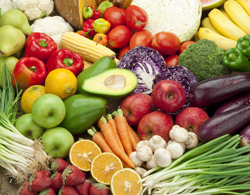
- bring us fruits, veggies, and nuts.
- help make half of the world’s raw materials, oils, and fibers.
- prevent soil erosion.
- are able to help remove carbon dioxide.
Who are the pollinators that help with this?
There are a variety of pollinators out there that aid in the pollination process. They include various small mammals, various insects, and more, such as:
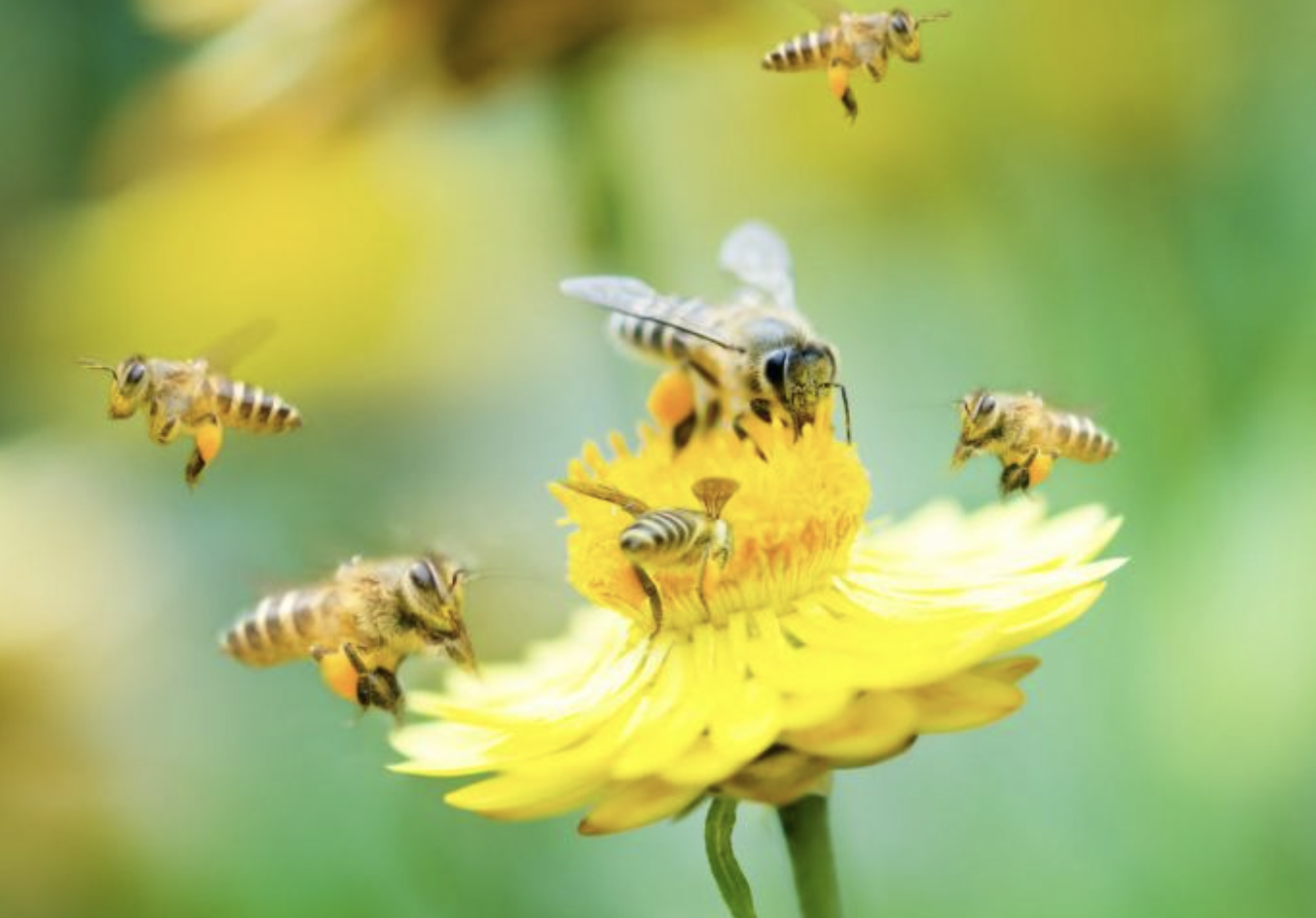
- Bees (most important pollinator) – see why here.
- Birds
- Bats
- Flies
- Moths
- Small Mammals (rodents, shrews, marsupials)
- Butterflies
- Ants
- Beetles
They all visit flowers and drink the nectar or feed off of the pollen. This transports pollen grains as they move around from place to place after doing so. Other various factors such as weather (wind, water, rain, etc.), humans, or self-pollination can cause pollen to move within a flower, or from bloom to bloom, as well.
How can you help?
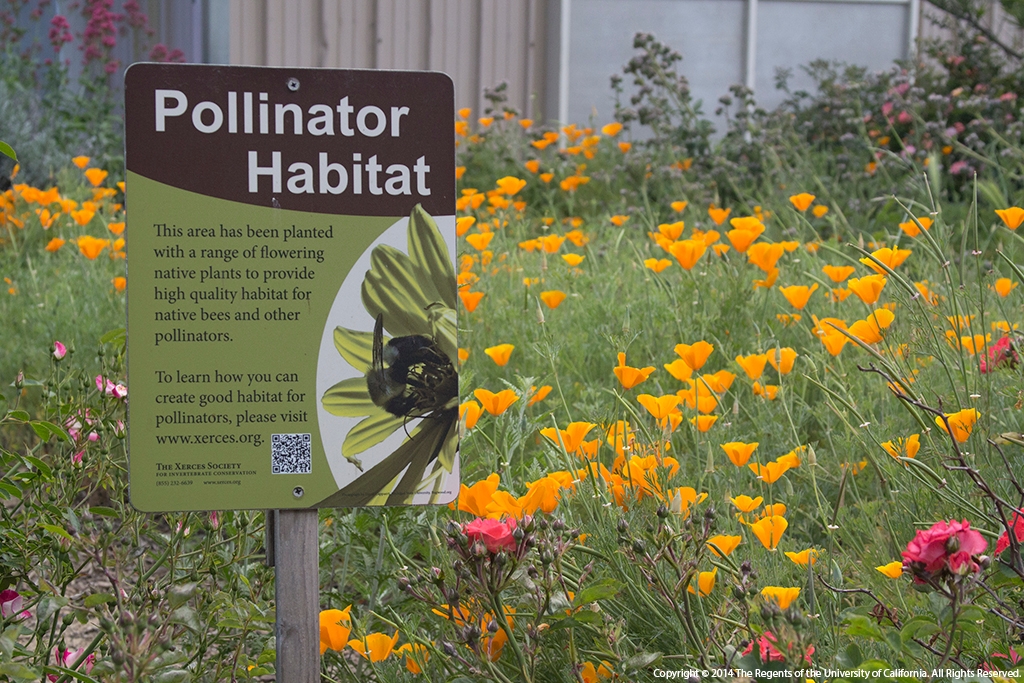
- Spread the word of their importance
- Plant lots of native plants in your garden
- Check out a list here: https://xerces.org/pollinator-conservation/pollinator-friendly-plant-lists (Also broken up by region)
- Provide a source of water
- Reduce your use of pesticides & chemicals
- Add a bee house
- Hang a bat box
- Choose a mixture of plants – various colors, scents, etc.


